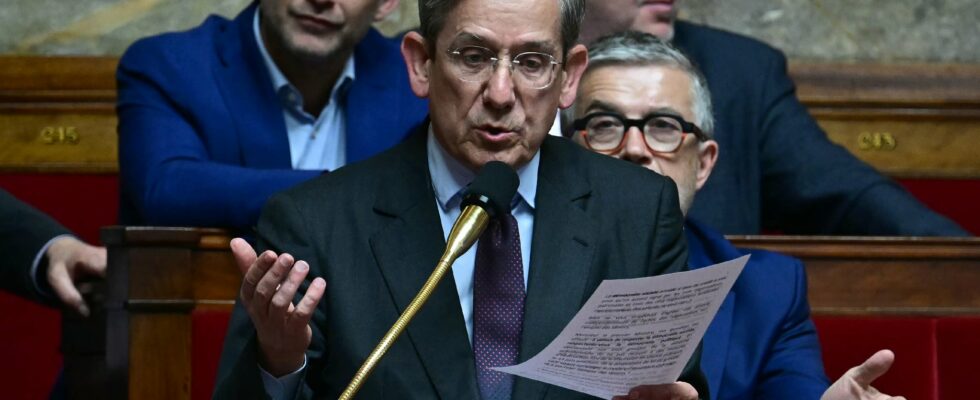Announced as “temporary” by the government, will the contribution of the wealthiest really be so? The deputies took advantage of their first day of examination of the 2025 budget, Wednesday October 16, to rework the government’s copy in committee, by extending the contribution of high-income households, one of the flagship measures of this text with which the Barnier government is already gambling on its future.
Supposed to help rebalance public finances by bringing in 2 billion euros in 2025, the provision contained in the 2025 finance bill (PLF) amounts to establishing a minimum tax rate of 20%, for three years . But the commission removed any time limit. All votes in committee will, however, have to be repeated in the hemicycle, where the deputies will start from the initial version of the bill.
In detail, the government is proposing that the wealthiest households, whose tax income exceeds 250,000 euros for singles, widowers, divorced people, and 500,000 euros for couples, pay more than the exceptional contribution on high incomes already in place. 62,500 households theoretically fell within the scope, but a preliminary study published on the website of the Ministry of the Budget estimates that 24,300 households would actually be liable.
But opposition deputies, general budget rapporteur Charles de Courson (Liot group) in the lead, welcomed the article with caution, and its system deemed too complex. At the initiative of Charles de Courson, they adopted a rewrite intended according to him to limit taxpayers’ recourse to tax advantages or tax credits, with the aim of reducing the bill. “There are fewer possibilities for tax optimization in my amendment than in the government text,” he summarized, without convincing at this stage the members of the government coalition, worried about the side effects of his rewriting. “It would not be serious to make a decision blindly,” said Eric Woerth (Ensemble pour la République, former Renaissance group).
Increase in the flat tax
The measure aims to supplement the substantial savings that the government hopes to make: 60 billion euros including 20 billion in new revenue. The difficult equation will be on the committee’s agenda until Saturday, before the debates in the hemicycle on Monday.
After a long discussion on Wednesday, the deputies also chose to increase the rate of the Single Flat-rate Deduction (PFU) from 30 to 33%, to “rebalance the participation of capital income in relation to labor income which contributes more to the budget of the State”, according to the author of the amendment Jean-Paul Mattei (MoDem). Nicknamed “flat tax”, the PFU was introduced in 2018 after the abolition of the ISF, with the objective of pushing the wealthiest taxpayers to invest in the economy. And in the process, the deputies resurrected and approved the idea of a tax on superdividends.
Back to zero in the hemicycle
MEPs also adopted several amendments on real estate, including one from the PS group to try to prevent the avoidance of a capital gains tax. Another, by Jean-Paul Mattei, provides for an overhaul of the taxation of real estate capital gains in 2026 and 2027, with removals of criteria for the duration of holding a property to benefit from reductions, in order to no longer encourage people to keep it off the market for a long time in order to avoid a tax. Several measures to combat tax evasion were also adopted in committee, but they will again have to be voted on in the hemicycle, then survive the shuttle with the Senate and the probable 49.3.
The debates are tinged with distrust over the causes of the slippage in the deficit which could reach 6.1% of GDP. The Assembly’s Finance Committee officially requested on Wednesday to obtain the powers of a commission of inquiry to look into this subject, when its Senate counterpart relaunched an information mission on the deterioration of public accounts. The commission will resume its work this Thursday morning, with a heated debate on the horizon on increases in electricity prices, opposed even by government supporters.
